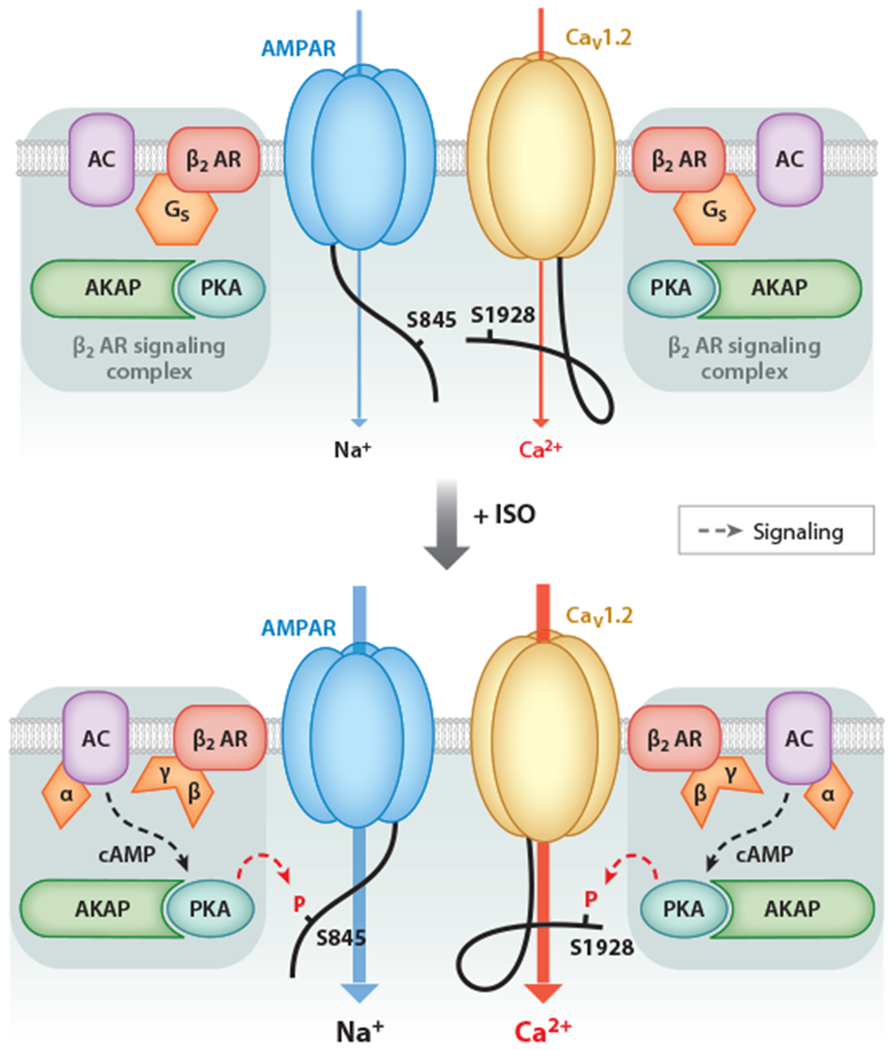Figure 4.

The β2 adrenergic receptor (β2 AR)–CaV1.2 and β2 AR–GluA1 signaling complexes participate in prolonged theta tetanus long-term potentiation (PTT-LTP). β2 AR activation is required in the induction of PTT-LTP. Stimulation of β2 AR augments CaV1.2 and AMPA-type glutamate receptor (AMPAR) channel activity via phosphorylation of CaV1.2 on S1928 and GluA1 on S845, respectively, by A-kinase anchor protein (AKAP)-anchored cAMP-dependent protein kinase (PKA). The upregulation in AMPAR activity increases depolarization upon synaptic transmission and thereby increases CaV1.2 activation, in addition to the increased open probability of CaV1.2 due to S1928 phosphorylation. Phosphorylation of both S845 and S1928 is required for the induction of PTT-LTP. Adapted from Reference 28 with permission from AAAS.
